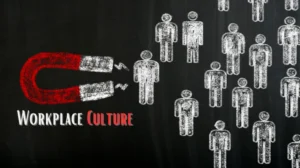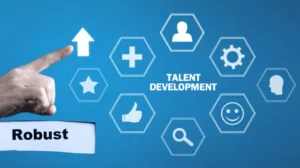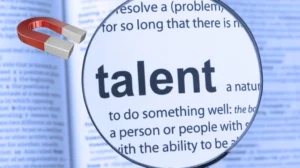Equity and Diversity in Talent Acquisition: A Blueprint for Sustainable Growth
Published by: Can X Global Solutions Inc.
Equity and Diversity in Talent Acquisition go beyond simple representation. They are about creating opportunities, removing barriers, and ensuring that every candidate, regardless of background, has a fair chance to succeed. In a modern, competitive job market, equitable hiring is not only a moral obligation but a strategic driver of innovation, performance, and organizational growth.

As the nature of work evolves, so do candidate expectations. Today’s professionals, particularly Millennials and Gen Z, are actively seeking employers that prioritize fairness, inclusivity, and values-driven leadership. Companies with robust equity practices not only attract this generation’s talent but inspire greater loyalty and productivity. Cisco’s commitment to workplace equality has enabled it to foster a culture of trust and innovation, positioning the company as one of the most desirable workplaces globally. Similarly, companies like Shopify actively support their remote workforce with technology stipends, ensuring equitable opportunities for candidates across diverse socioeconomic backgrounds.
- Eliminating Bias in Hiring” Standardizing job descriptions, interview protocols, and evaluation criteria ensures fairness at every stage of the recruitment process. Blind hiring practices, where identifying details like name, gender, or ethnicity are removed during resume screening, have proven effective. For example, many orchestras adopted blind auditions, resulting in significant increases in the hiring of women musicians. In recruitment, similar principles are now used to evaluate candidates solely on their skills and experience.
- Creating Accessible Opportunities: Providing pathways for underrepresented groups to succeed is essential. Organizations are implementing mentorship programs, targeted internships, and skills-based workshops that empower marginalized candidates to compete effectively. Programs like Blackstone’s Career Pathways train and recruit candidates from underserved communities, helping address critical workforce shortages while promoting upward mobility.
- Flexible and Skill-Based Hiring: Rigid hiring criteria, such as traditional degree requirements, can unintentionally exclude qualified candidates. Organizations are shifting toward skill-based assessments and flexible job design, focusing on candidates’ abilities and potential. For example, many companies now prioritize leadership qualities and problem-solving skills over conventional educational backgrounds, opening doors to individuals with unique experiences and perspectives.
- Building Inclusive Talent Pipelines: Proactively expanding recruitment channels ensures broader outreach to underrepresented groups. Partnering with organizations that focus on Indigenous employment, women in STEM, or veterans allows companies to tap into previously overlooked talent pools. Jopwell, a platform connecting employers with Black, Latino, and Native American professionals, exemplifies how targeted partnerships can diversify the candidate pipeline.
- Fair Candidate Assessments with Accommodations: Equitable assessments focus on objective, job-relevant evaluations. Tools like skills tests, structured interviews, and behavioral assessments minimize bias while highlighting a candidate’s true abilities. Additionally, providing accommodations, like accessible testing environments or adjustments for individuals with disabilities, ensures that all candidates have equal opportunities to demonstrate their qualifications.
- Transparency and Accountability: A transparent hiring process builds trust. Clearly communicating job criteria, hiring stages, and decisions helps candidates feel valued and respected. Companies that conduct regular audits to identify and address equity gaps can take timely, data driven actions. For instance, Harvard Business School research highlights how transparent evaluations increase fairness and reduce the influence of unconscious biases.
- Responsible Use of AI and Technology: Technology can either reinforce bias or help eliminate it. AI tools, when used responsibly, offer opportunities to analyze hiring trends, track diversity metrics, and refine recruitment strategies. By ensuring AI systems are developed with diverse datasets, companies can create more equitable processes while improving efficiency.
- Supporting Career Transitions and Re-Entry: Pathways for individuals returning to the workforce, such as parents, caregivers, or veterans, demonstrate a company’s commitment to equity. Programs like return ships provide opportunities to refresh skills, gain experience, and reintegrate into the workforce confidently.
As one of the most multicultural countries in the world, Canada has a unique opportunity to lead in equitable hiring practices. With over 23% of its population born outside the country, equity is not just about inclusion, it’s about ensuring the workforce reflects the nation’s diversity.
- Bridging Labor Shortages: Canada’s aging population and labor shortages require tapping into underrepresented talent pools. Immigrants, Indigenous communities, and persons with disabilities offer untapped potential to fill critical skill gaps.
- Regional Focus: Tailoring strategies to regional needs—such as culturally sensitive employment pathways for Indigenous peoples—helps address historical inequities.
- Legal and Ethical Compliance: Frameworks like the Employment Equity Act require employers to eliminate barriers for designated groups, ensuring inclusive participation in the labor market.
Why Equity Drives Success
Organizations that prioritize equity and diversity reap measurable benefits:
- Enhanced Innovation and Performance: Diverse teams bring varied perspectives, fostering creativity and adaptability. Research consistently shows that organizations with inclusive workforces outperform their competitors.
- Stronger Employer Brand: Fair hiring practices build trust with both employees and consumers, enhancing a company’s reputation.
- Improved Retention and Engagement: Employees who feel valued and included are more engaged and loyal, reducing turnover costs.
- Access to Untapped Talent: Equitable hiring practices expand the talent pool, enabling organizations to attract highly skilled candidates from underrepresented groups.
Companies like Ernst & Young have achieved gender parity in leadership roles by setting clear equity targets and implementing recruitment strategies to attract and retain women. Similarly, organizations that embrace equity are more competitive globally, as seen in Canada’s technology and healthcare sectors, where attracting top-tier international talent is critical.
The future of work belongs to organizations that embrace equity as both a moral and business imperative. In Canada’s diverse, fast-paced economy, companies that prioritize fairness and inclusivity will be the ones driving innovation, solving problems, and achieving sustainable growth. Equity in talent acquisition isn’t about lowering standards, it’s about recognizing talent where it exists, removing unnecessary barriers, and ensuring every candidate has a fair shot. By embedding equity into every step of the hiring process, organizations don’t just create opportunity, they build stronger teams, better businesses, and a brighter future for all.
Trusted by Businesses Big or Small




































































